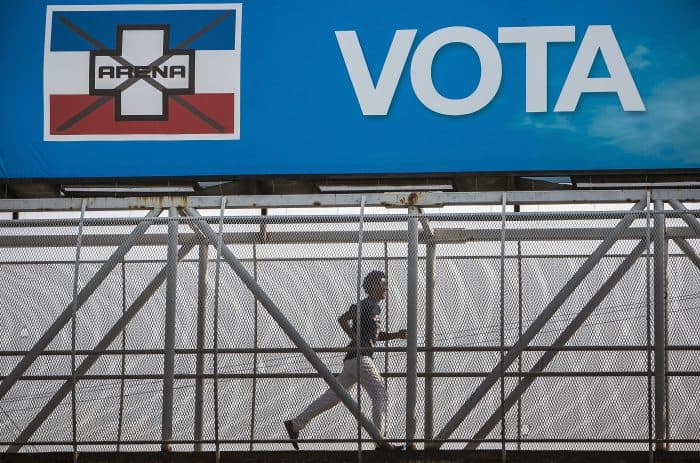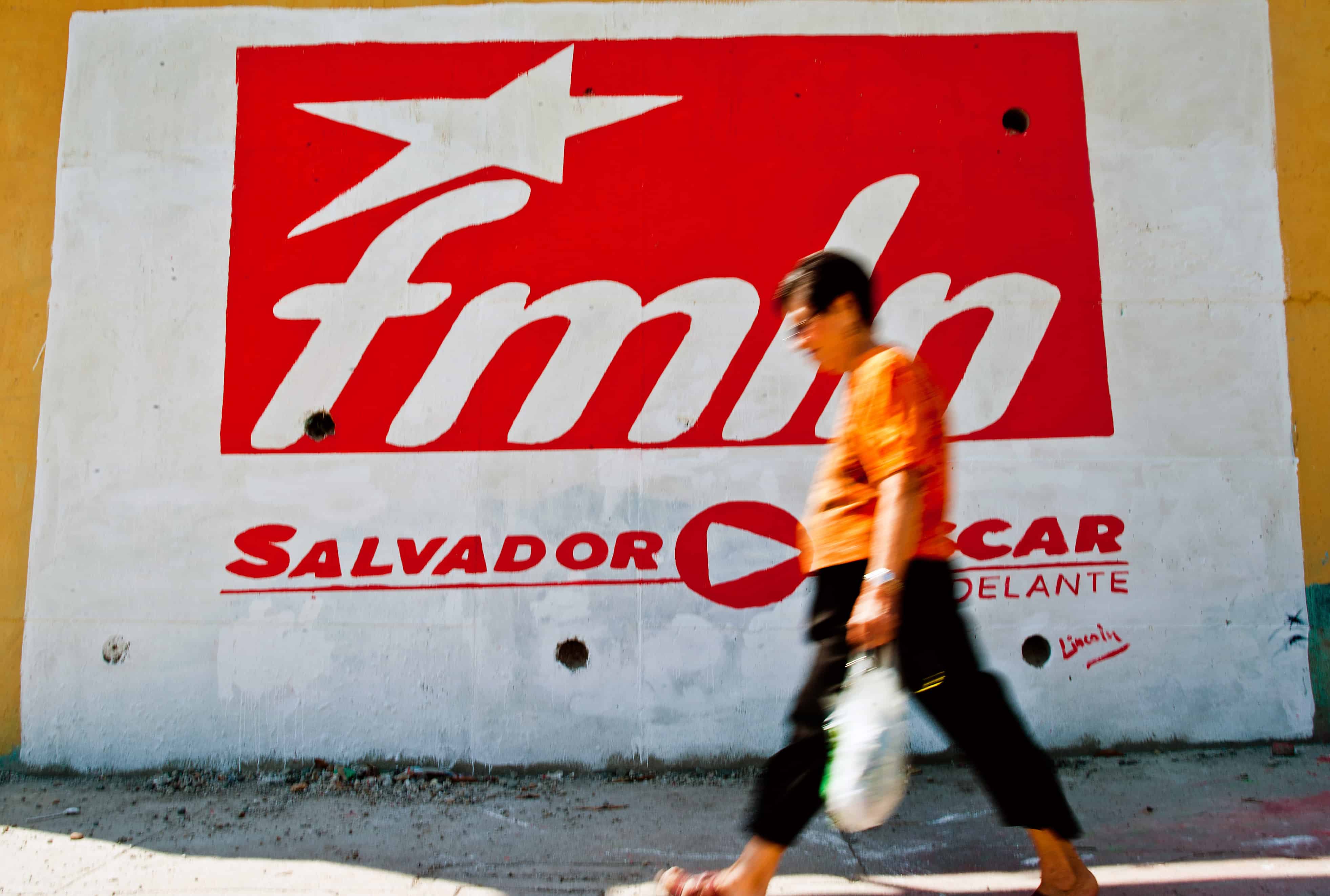SAN SALVADOR, El Salvador – An ex-guerrilla commander is favored to win an election runoff in El Salvador on Sunday against the capital city’s mayor and inherit the twin tasks of fighting grinding poverty and rampant gang violence.
The small but densely populated Central American country of six million elected its first leftist government in 2009, and former journalist Mauricio Funes became president.
A moderate, he represented the Farabundo Martí National Liberation Front (FMLN), which fought U.S.-backed governments in a war that lasted from 1979 to 1992 and left a painful legacy that endures.
The party is now turning to its current vice president, former rebel commander Salvador Sánchez Cerén, 69, to keep the presidency for another five years.
Polls give him an ample margin over San Salvador’s mayor Norman Quijano, 67, of the right-wing Nationalist Republican Alliance, or ARENA. It was in power for two decades before being unseated by the rebel army turned political party.
The FMLN fell just shy of an outright victory in the first round on Feb. 2, capturing 49 percent of the votes, when it needed 50 percent plus one vote. In any case, that was 10 points more than ARENA.
Now Sánchez Cerén is again favored heavily. A poll released 10 days ago by Central American University gave him 56.2 percent of the votes, against 41.8 for Quijano.
‘Flores factor’
Since the first round, Quijano has sought a badly needed boost in public opinion by softening his language against the street gangs, known in Central America as “maras.” He had earlier pledged an iron-fisted approach. He also accused the FMLN of cutting deals with two main maras.
Quijano is seeking to capitalize on unrest in Venezuela, where there have been almost daily protests against leftist President Nicolás Maduro and his handling of an economy with runaway inflation and a horrific murder rate.
“Here, we are still in time to shine with our own light,” one campaign ad says. “El Salvador will not be another Venezuela,” it adds, with footage of street demonstrations in Venezuela.
But Quijano also is saddled with baggage in the shape of his former campaign adviser, ex-President Francisco Flores, who is being probed over what happened to $10 million donated by Taiwan during his 1999-2004 government.
ARENA removed Flores from his job two weeks ago but the controversy has hurt Quijano’s campaign.

Truce and finances
After the civil war, El Salvador found itself facing violence from the street gangs, which control whole neighborhoods and run drug distribution and extortion rackets.
Homicides were running at 14 per day until a truce was reached between the two main gangs in March 2012, which helped bring the rate down to seven per day. But extortion and other crimes by them persist.
The maras are believed to have about 60,000 members, 10,000 of whom are behind bars.
Sánchez Cerén is proposing a program that would allow ex-gang members to rejoin society. But he wants to fight those who won’t give up street life.
Quijano used to talk tough against the gangs but has softened his tone and talks now about spending money to keep kids out of the gangs and rehabilitate those that are already in them.
Whoever wins the presidency and takes office on June 1, the economy awaiting him is a mess. Growth slowed in 2013 to 1.9 percent and 40 percent of the population lives in poverty and is highly dependent on remittances.
That money sent from abroad totals around $4 billion a year and accounts for 16 percent of the country’s gross domestic product.
Sánchez Cerén, a teacher by trade and former education minister, wants to spend more on social programs and finance them with a “progressive fiscal policy.”
“The main thing is to use those funds honestly,” he has said, without giving details.
Quijano wants to create an “atmosphere of trust” that will attract investors and create jobs. He also seeks social development and austerity, but without raising taxes.






